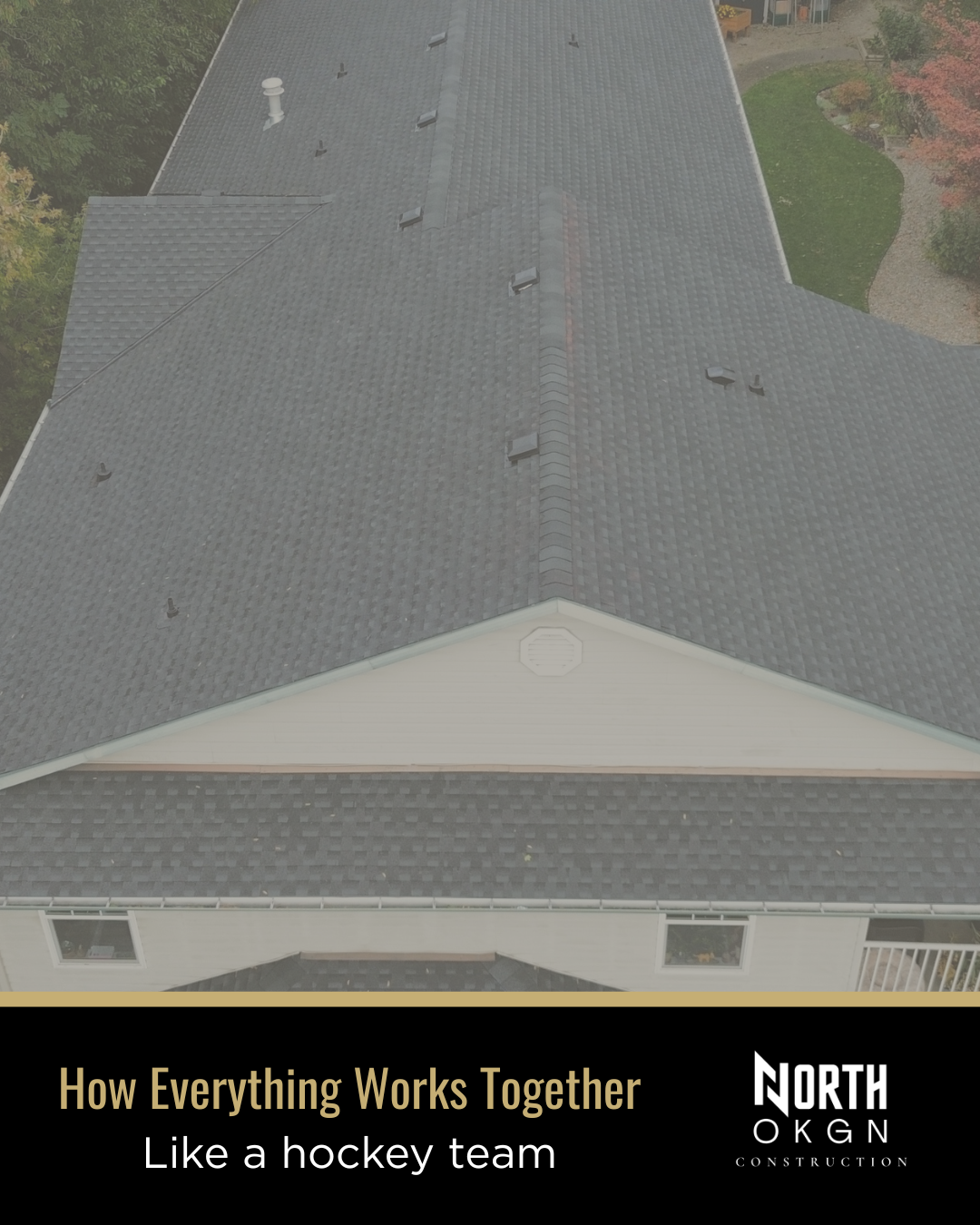12 FAQs to Ask Your Roofing Contractor (Before You Let Them on Your Roof With Power Tools)

12 FAQs to Ask Your Roofing Contractor (Before You Let Them on Your Roof With Power Tools)
Thinking about repairing or replacing your roof? Whether you’ve got a few missing shingles or the whole thing is starting to resemble Swiss cheese, your roof deserves a professional who knows their stuff—and won’t disappear faster than leftover Halloween candy. Before you let anyone climb a ladder and start swinging hammers, here are 12 key questions to ask your roofing contractor. Bonus: we’ve added a little dad humor to keep things breezy(unlike your attic, which we hope is well-ventilated).
1. Do you have a business license?
Let’s set the scene: a rusty van pulls up, a couple of guys jump out with a ladder, and one of them calls himself “Joey the Roof Whisperer.” If this reminds you of the Wet Bandits from Home Alone, it’s probably best not to let them anywhere near your house—or your plumbing.
A valid business license shows that the contractor has taken the steps to register their business properly and is legally allowed to operate in your area. It’s your first clue that they’re the real deal, not just running a side hustle between “jobs.”
2. Do you have WCB, commercial and general liability insurance?
This isn’t just red tape—it's a big ol’ safety net. WCB (Workers' Compensation Board) coverage protects workers if they’re injured on the job. Liability insurance protects you and your home and property in case something gets damaged, or something goes sideways during the job.
Without both? You're potentially on the hook for medical bills or repair costs—and that’s a surprise expense no one wants (except maybe your insurance adjuster, who weirdly loves paperwork). If your contractor can’t show proof of insurance, show them the door.
3. Do I need a repair or a roof replacement?
This is like asking, “Do I need a new engine or just an oil change?”
A trustworthy contractor won’t upsell you on a full replacement unless it’s actually needed. They’ll assess the age and condition of your roof, check for underlying issues and any visible damage. Sometimes a simple repair will keep things sealed up for a few more years. Other times, you’re better off replacing the whole system—especially if your current roof is old enough to vote.
4. Are you associated with a manufacturer?
Contractors who are certified by major roofing manufacturers often have to meet higher standards for installation and training. At North OKGN Construction, we’re proud to say we are GAF Master Elite® Certified installers. Only about 2% of roofing contractors in North America hold this certification.
To maintain it, we must:
- Be properly licensed and insured
- Have a proven reputation for quality
- Commit to ongoing professional training to stay current with the latest roofing technologies and installation practices
What does this mean for you? We can offer GAF’s best-in-class warranties, including up to 25 years of workmanship coverage, and we’re held to higher installation and service standards. It’s like the difference between a standard cup of coffee and one from a barista who knows your name and spells it right every time.
5. How much experience do you have?
Experience matters— Especially when it comes to things like roof angles, flashing details, and knowing not to store leftover nails in your gutters. Ask how long they’ve been roofing, whether they’ve worked on homes like yours, and how seasoned their crew is. Bonus points if they’ve been around long enough to have done your neighbour’s roof—and that guy’s picky. However, if they say, “This is our first one, but we watched a tutorial,” it’s time to politely close the gate behind them.
6. What kind of training do you have?
Roofing isn't just about balance and bravery. It's about precision, safety, and knowing how all the pieces come together.
Ask if the crew has training from manufacturers (like GAF), safety certifications, and regular updates on best practices. Our team is continually trained to meet GAF’s standards and beyond—so your roof doesn’t become a DIY experiment gone wrong. If the contractor’s idea of training is watching a five-minute YouTube video while eating a sandwich—move along.
7. Do you use a complete matching system of roof components?
Your roof is more than just shingles. It’s a full system of parts that need to work together like a well rehearsed boy band—including underlayment, flashing, starter strips, ridge caps, and vents.
We use manufacturer-recommended, system-matched components. Mixing brands or cutting corners is a recipe for problems. It's like wearing dress shoes with gym socks—sure, it might “function,” but no one’s going to be impressed.
8. What is the installation process?
A good contractor should walk you through the process—from site prep and tear-off to installation and cleanup. Ask how long the project will take, how the crew will protect your landscaping, how they handle clean-up, and what happens if the weather turns ugly. A quality contractor will be transparent and won’t disappear faster than your socks in the dryer.
At North OKGN Construction, we’ll give you a projected timeline (keeping in mind that roofing is heavily weather dependent), protect your landscaping, and keep the work area clean and safe. And yes, we’ll even use magnets to pick up rogue nails—because the only thing you should be stepping on is your welcome mat, not hardware.
9. What is roof decking, and will you check the condition of it?
This is an important one. The decking is the plywood base under your shingles. If it’s rotten or damaged, slapping new shingles on top is like putting icing on a moldy cake. Upon initial assessment, we’ll walk the roof and make an educated guess about the condition of your decking based on signs of sagging, water intrusion, or soft spots. But the only way to know for sure is once the old roofing system is torn off.
Make sure your contractor plans to inspect the decking after tearing off the old roof and replace any bad sections before installing the new system. A reputable contractor will also show you photos if anything needs replacing—because transparency is key (and you probably don’t want to climb up there yourself).
10. How will you handle my skylights (if you have them)?
Skylights are great for natural light and also, for leak is they’re not handled properly.
We assess each skylight individually. If it’s newer and in good condition, we’ll reflash it properly to ensure a tight seal. If it’s older or showing signs of wear, we’ll recommend replacement. What we won’t do is ignore it and hope it holds—because wishful thinking isn’t a roofing strategy. Ask your contractor whether they’ll replace or reflash the skylights. Working around them is a red flag and you’ll want someone who treats your skylights with respect.
11. What ventilation system will you use?
Ventilation is the unsung hero of a healthy roof. It prevents moisture buildup, balances attic temperatures, and extends the life of your shingles.
Ask if your contractor will be using ridge vents, intake vents, or other systems, and how they’ll ensure your roof is balanced. Poor ventilation can lead to mold, ice dams, and shingles that look like they’ve been through a breakup.
12. How is payment handled?
Every roofing company will have its own payment terms, but it’s important that they’re clearly laid out in writing before the work begins. Typically, contractors may require a deposit to schedule the job and purchase materials, followed by a balance upon completion—or in milestone payments for larger projects.
What matters most is transparency. You should know when payments are due, how much, and what you’re getting at each stage.
Beware of anyone asking for 100% upfront or insisting on cash only. You’re hiring a contractor, not entering into a sketchy back-alley poker game.
Final Thoughts: It’s the Roofer, Not the Roof
Here’s the thing: You could buy the best roofing materials on the planet, but if they’re installed by someone cutting corners, that “new roof” could start leaking before your next oil change.
Sometimes it takes 5–8 years before the mistakes of a low-quality roofer come to light—long after they’ve changed their phone number and disappeared like Houdini.
That’s why choosing the right contractor matters more than choosing the right shingle color.
A good roofer leaves you with a solid roof overhead.
A great roofer leaves you with peace of mind that lasts for decades.
(And maybe a few dad jokes along the way. You’re welcome.)


















